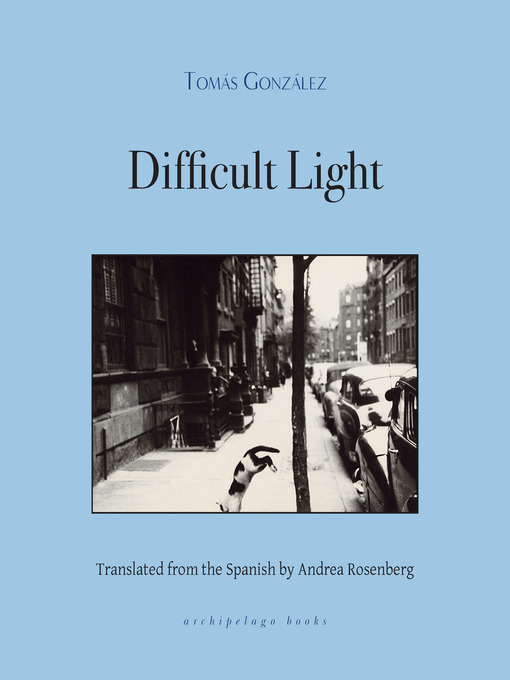
Difficult Light
کتاب های مرتبط
- اطلاعات
- نقد و بررسی
- دیدگاه کاربران
نقد و بررسی

Starred review from April 1, 2020
There's hard light indeed for 78-year-old artist David, who's recently widowed, unable to paint owing to failing eyesight, and at home in Colombia, using a magnifying glass and blackberry-sized letters to record grievous events that unfolded when he and his family lived in 1980s Manhattan. With David's career solid if not soaring, the family had moved to a light-blessed apartment on the Lower East Side when a taxi carrying eldest son Jacobo was hit by a drunk driver, leaving Jacobo paralyzed from the waist down and in constant, insurmountable pain. Though brother Pablo had abandoned his academic dreams to help, efforts to retrain Jacobo's body or even diminish his physical anguish are for naught, and as the novel opens, David awaits word with his wife and closest friends of Jacobo's assisted suicide in Oregon. VERDICT Gonz�lez (The Storm) unfolds the story in luminous, reverberant language all the more heart-wrenching for eschewing graphic detail; David's painterly sensitivity is enough. Magnificent.
Copyright 2020 Library Journal, LLC Used with permission.

June 15, 2020
An elderly painter with roots in South America reflects on his life since he immigrated to New York City. It's hard to say what was on Gonz�lez's mind as he wrote this novel, nearly 40 years after his debut, In the Beginning Was the Sea (1983), but it's a very poetic reverie. Our narrator is an aged painter with origins in Bogot�, Colombia--called "Don David" by his housekeeper, �ngela--but in the current timeline, he's relatively settled in New York. The most important people in his life have been his wife, Sara, whom he married at 26 and was married to for some five decades until she passed away, and his sons, Pablo and Jacobo, each of whom had their own burdens to carry. This is in some ways a reflection on aging, as the painter has macular degeneration and a variety of other maladies, and in others simply a picturesque and vivid remembrance of the moments that mattered in one person's life. At the bottom of it all is the narrator's unending grief over his son, Jacobo, paralyzed when a junkie driving a pickup truck struck the taxi he was riding in at the time. To his credit, Gonz�lez could have written a portrait of triumph over adversity, but life just doesn't work that way sometimes, and the painter is forced to see his son suffer and finally die. The book's narrative style is both modest and subdued, no doubt aided by Rosenberg, who previously translated the author's last work, The Storm (2018). For better or worse, mostly it's sad, neither a celebration of the narrator's long life nor an embittered prosecution of the terrible pitfalls that befell him and his. It's just a life, after all. Give the author his own ill-fated summation: "It's a cruel clich� the last thing you lose is hope."
COPYRIGHT(2020) Kirkus Reviews, ALL RIGHTS RESERVED.

June 29, 2020
In González’s genial, reflective tale (after The Storm), a recently widowed Colombian painter composes a narrative of his family’s life in the U.S. and the death of their oldest son. In 1983, David and Sara move with their three sons from Colombia to the U.S., and eventually settle in New York City. David’s period of creative flourishing is abruptly ended in the early 1990s, when his oldest son, Jacobo, is badly injured in a car accident. Three years later, Jacobo, still half paralyzed, begins having chronic, unbearable pain. Sales of David’s paintings fund Jacobo’s medication and physical therapy, but eventually Jacobo decides he wants to end his life. Pablo, the middle brother, agrees to help, and, in 1999, they fly to Portland, Ore., where a doctor has agreed to cooperate. Meanwhile, David observes the limits of his ability to convey the truth of his emotions in his paintings. Much of the novel is taken up by calls to David from Jacobo and Pablo from Portland, while the rest is comprised of present-day reflections on Sara. David describes their passion, which is muted only by their advancing age. While the fractured, nonlinear narrative can be tough to follow, it’s laced with moments of beauty and domestic peace. In the end, González achieves a brilliant triangulation of a man’s attempts at self-expression through two artistic mediums.

























دیدگاه کاربران